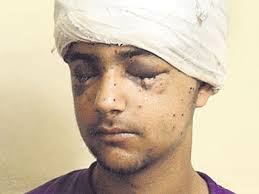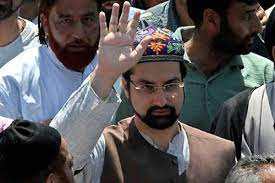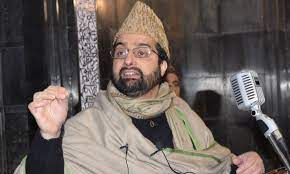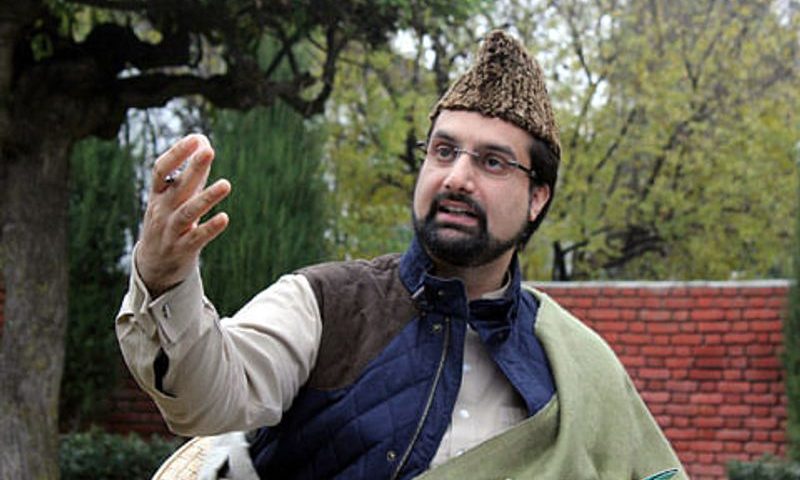Twenty-six-year-old, Mohammad Ashraf Wani has discontinued his college education. He was blinded in an eye after government forces fired pellets at him last year on 31 October near his home at Rohmoo in Pulwama. The pellets scarred his body and, despite multiple surgeries, he was unable to regain vision in right eye. In 2016, when protests in Kashmir had become fierce after the death of Hizbul Mujahideen commander, Burhan Muzafar Wani, the 26-year-old received pellets as he was watching the protests go on.
Like Ashraf, there are other large number of pellet victims who were either blinded in one, or both eyes, and are now unable to carry on with their studies or do jobs. Over a year after mass protests in Kashmir, the Centre has not been able to fulfil its promise to ban pellets even after the weapons have left thousands visually-handicapped across Kashmir.
A recent report, titled Losing Sight in Kashmir: The Impact of Pellet-Firing Shotguns, released by the Amnesty International over the impact of pellet guns in Kashmir, noted that ” a weapon which was meant to be deployed for ‘crowd control’ has been responsible for blinding, killing and traumatising people in Kashmir.”
As per the report, the pellet guns have been in use since 2010 and they have left hundreds without vision since July 2016. “Pellet firing shotguns have no place in law enforcement,” it said. The Amnesty has documented 88 cases of people “whose eyesight was damaged-some temporarily, some permanently- by metal pellets.” The report further noted that school-going boys and girls have lost vision in one or both the eyes and have difficulty reading and playing with friends. “Several people have not regained their eyesight despite going through repeated surgeries and are spending considerable amounts on medical treatment,” the report added.
Some like Ifrah Shakoor, who has been featured in the report, are shattered. Sixteen-year-old Ifrah was fired upon with pellets on the same day as Ashraf. Protests outside her house in Rohmoo had swelled when she was hit with pellets. Ifrah was sitting in the lawn of her house when the incident occured. The Amnesty report has quoted her as saying, “I want to read and write, but the pellets have made it difficult.” Her aunt Rubeena Akhtar said Ifrah was going out of her house to look out for her brother, after the joint raid by police and army, and she had not even stepped out of their gate when a hail of pellets hit her in the face.
“Ifrah has undergone four surgeries, but is not able to gain vision in left eye,” said Rubeena. ” Now she doesn’t go to the school. When the pellets hit her she was reading in 8-th class at Shiekh ul Alam institute, which is a private school, but now she doesn’t go there. She has dropped out as she is not able to read.”
Zuhaib Maqbool, a freelance photojournalist, has been left jobless after he was injured in pellet firing last year in September. “I am not able to work. I used to do photography for newspapers as well as other commercial projects, but it is all lost now. If I work with my right eye, it puts a strain on my left eye and it is painful to work.”
Maqbool has undergone three surgeries in left eye after he had received two pellets while covering the protests in Srinagar’s Rainawari area last September. He said even after pleading with the police that he was only doing his job they didn’t spare him. ” I also showed my camera, but they targetted me.” Recalling the incident, Zuhaib said he had gone to Rainwari area to cover the protests when the police used indiscriminate means to control the crowd.
“As the police fired few pellet shots in the air, people started dispersing. There were three photojournalists, including me, who were waiting nearby. One was in the alley, another one of us ducked after the pellets were fired, but I received the pellets in my eye. I even waved camera in my hand and signalled that I was only a photojournalist, but police didn’t relent.” Now, the doctors have advised Zuhaib to undergo another surgery, but he is not sure whether he will regain vision.
As per the Amnesty report, the use of pellet guns has been indiscriminate in Kashmir and it has also sought ban on their use. Some cases of police personnel who were also injured due to use of pellets have also been reported by the Amnesty. “Pellet firing shotguns are inherently indiscriminate and their use by the security forces also risks injuring other members of the police or armed forces,” the report read. ” While India witnesses protests every day, some of them violent, the pellet-firing shot gun has been used in Kashmir. The Union Home Ministry has suggested on several occasions that these weapons will be replaced, but those promises have not been kept. Law enforcement authorities have a duty to maintain public order but the use of pellet firing shotguns, which are inherently inaccurate and carry a high risk of harm is not proportionate use of force. Stone throwing or other violence by protestors should be addressed in less harmful way by other means that allow for better targeting or more control over the harm caused,” the report added.
As per the data of state’s health department, over 6,500 pellet injuries have been received by the doctors across different hospitals in Kashmir and those who were injured are not only from the South Kashmir areas where the protests after the death of Burhan Wani were fierce but in other parts of Valley including its northern part as well.






